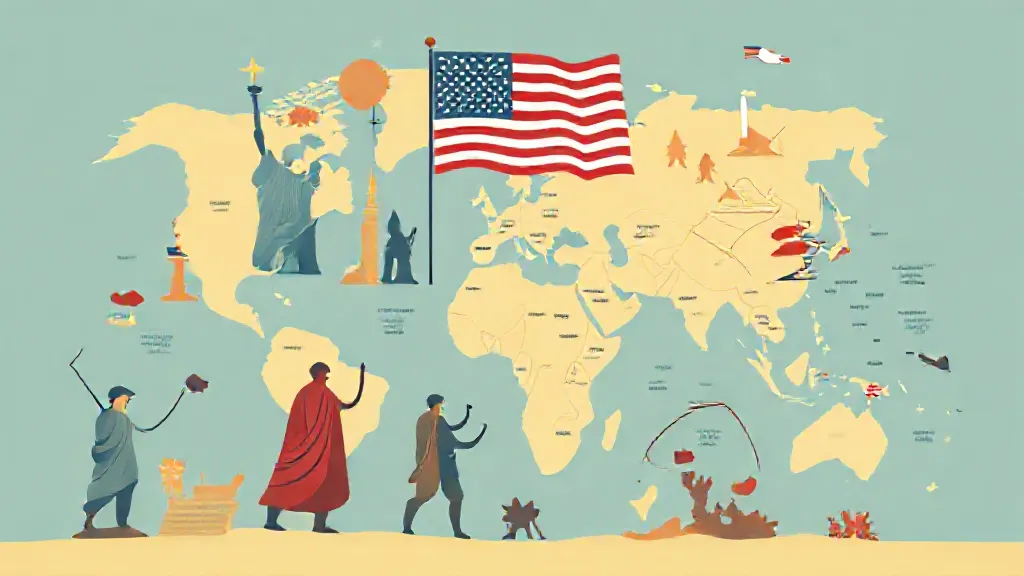The American Revolution, which unfolded between 1775 and 1783, is often viewed primarily as a conflict between the thirteen American colonies and Great Britain. However, this significant historical event had far-reaching implications that extended well beyond the borders of North America, marking it as a global event. The Revolution not only inspired other nations but also influenced international politics, trade, and colonial dynamics across the globe.
Global Ideological Impact
The American Revolution was rooted in Enlightenment ideals, advocating for liberty, equality, and democratic governance. These principles resonated with various groups worldwide, particularly in Europe and Latin America. The success of the American colonies in overthrowing British rule served as a beacon of hope for those seeking to challenge oppressive regimes.
Revolutionary leaders in France, such as Maximilien Robespierre and Georges Danton, were inspired by the American example, leading to the French Revolution in 1789. The ideas of self-governance and individual rights that emerged from the American struggle laid the groundwork for future revolutions and movements around the world.
International Alliances and Diplomacy
The American Revolution also transformed international relations, notably through the formation of alliances.
The colonies recognized early on that they could not defeat Great Britain alone. France, motivated by a desire to weaken its long-time rival, entered into a formal alliance with the American colonies in 1778. This alliance provided crucial military support and resources, significantly altering the course of the war.
Additionally, Spain and the Dutch Republic provided indirect support, further complicating British military efforts. The interplay of these international alliances during the Revolution illustrates how the conflict was not merely a national struggle but a global affair involving multiple nations.
Economic Consequences and Trade
The Revolution had profound economic implications that reverberated around the world.
The disruption of trade during the conflict forced American merchants to seek new markets and trade partners, leading to a diversification of their economic relationships. Moreover, the Revolution prompted discussions on free trade and economic independence, influencing economic policies in other nations. The disruption of British mercantilism and the emergence of American trade routes contributed to a shift in global economic power dynamics, encouraging other colonies to pursue similar paths of independence and economic autonomy.
Influence on Colonial Movements
The American Revolution directly inspired various independence movements in the late 18th and early 19th centuries. The Haitian Revolution (1791-1804), which resulted in the establishment of the first independent Black republic, was heavily influenced by the American struggle for liberty. Leaders like Toussaint L'Ouverture drew parallels between their fight against colonial oppression and that of the American colonists.
Similarly, the independence movements in Latin America, led by figures such as Simón Bolívar and José de San Martín, were motivated by the desire to emulate the success of the American Revolution, showcasing its global reach.
Cultural Exchange and Enlightenment Ideas
The American Revolution facilitated a significant cultural exchange that spread Enlightenment ideas across the globe. The writings of American revolutionaries, such as Thomas Jefferson and Benjamin Franklin, circulated widely and influenced intellectual thought in Europe and beyond.
The Declaration of Independence, in particular, became a symbol of the fight for human rights and inspired various movements advocating for democracy and social justice. This cultural diffusion helped to create a shared global discourse on liberty and governance that transcended national boundaries.
Military Innovations and Tactics
The American Revolution also introduced military innovations and tactics that were adopted in other conflicts worldwide.
The use of guerrilla warfare, strategic alliances, and the mobilization of civilian populations were tactics that proved effective against a conventional military power. These strategies influenced revolutionary movements in various contexts, including the wars of independence in Latin America and the struggles for national unification in Europe. The lessons learned from the American Revolution contributed to a broader understanding of warfare and resistance against colonial powers.
Legacy of the American Revolution
The legacy of the American Revolution as a global event is evident in the continued struggles for independence and self-determination around the world. The principles established during this period continue to resonate, as nations and peoples strive for democratic governance and human rights. The Revolution's impact can be seen in contemporary movements advocating for social justice, equality, and freedom, demonstrating that the fight for independence in America had lasting implications that shaped the course of history globally.
In conclusion, the American Revolution was not merely a national conflict; it was a pivotal global event that influenced ideologies, international relations, economic practices, and revolutionary movements worldwide. Its legacy endures in the ongoing quest for liberty and justice, underscoring the interconnectedness of historical struggles across nations and cultures.
